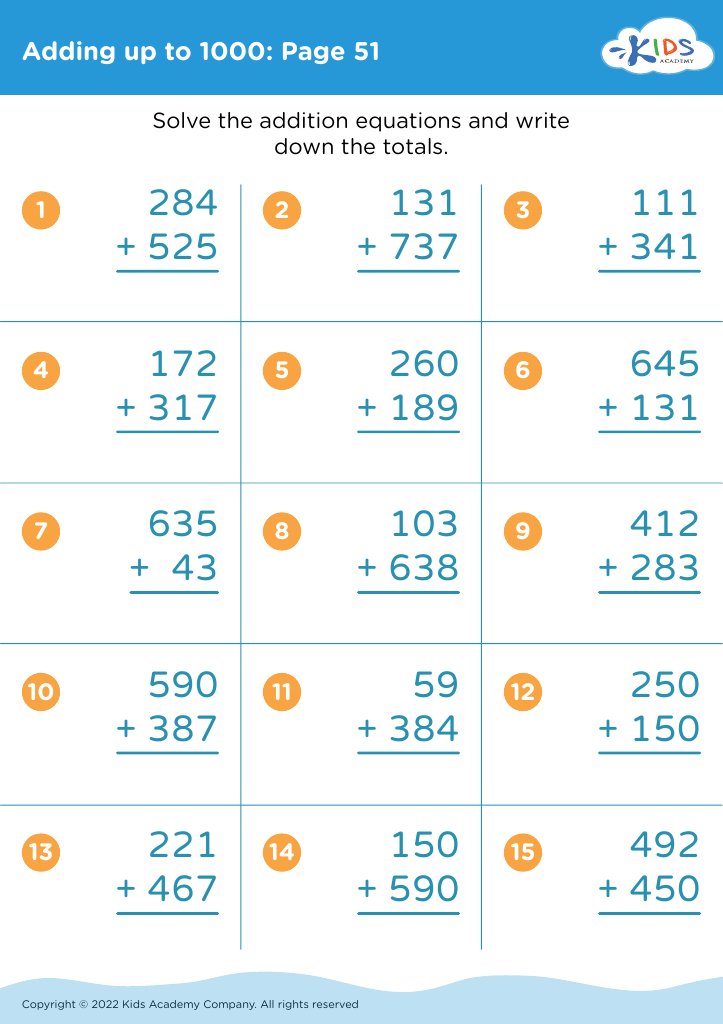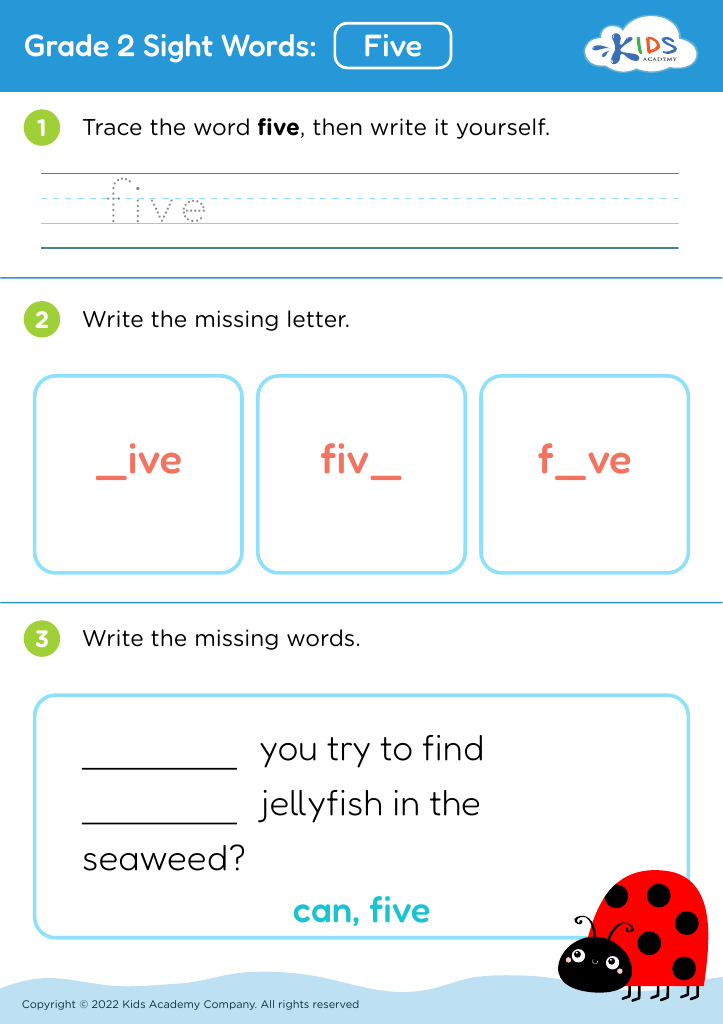Understand symmetry Worksheets for Ages 4-7
3 filtered results
-
From - To
Discover our engaging "Understand Symmetry Worksheets" tailored for children aged 4-7! These fun activities introduce young learners to the concept of symmetry through interactive exercises that blend education with creativity. Kids will enjoy identifying and creating symmetrical shapes, as well as completing colorful patterns, helping them enhance their analytical skills and spatial awareness. Designed with age-appropriate challenges, our worksheets provide an excellent opportunity for parents and teachers to support early learning both at home and in the classroom. Bring the joy of learning symmetry to life with our vibrant and easy-to-use printable resources that inspire creativity and critical thinking in young minds!
Understanding symmetry is crucial for children aged 4-7 as it lays the foundation for their mathematical and spatial reasoning skills. At this early stage, children are naturally curious and learn best through exploration and play. Recognizing symmetrical patterns enhances their ability to observe and describe the world around them, making it easier to identify shapes, designs, and structures in everyday life.
Teaching symmetry also fosters critical thinking and problem-solving abilities. When children discover lines of symmetry in objects or drawings, they engage in thoughtful analysis and develop logical reasoning skills. This understanding can strengthen their performance in more complex mathematical concepts as they progress in school.
Moreover, symmetry is a fundamental concept present in various subjects, including art, science, and nature. Engaging children with lessons on symmetry can spark creativity and inspire an appreciation for beauty, encouraging them to see connections across different learning areas.
Lastly, talking about symmetry helps develop language skills, as students will learn to discuss and describe their observations. Overall, understanding symmetry nurtures a child's cognitive, social, and emotional development, making it vital for parents and teachers to prioritize this fundamental skill in early childhood education.








.jpg)

.jpg)










